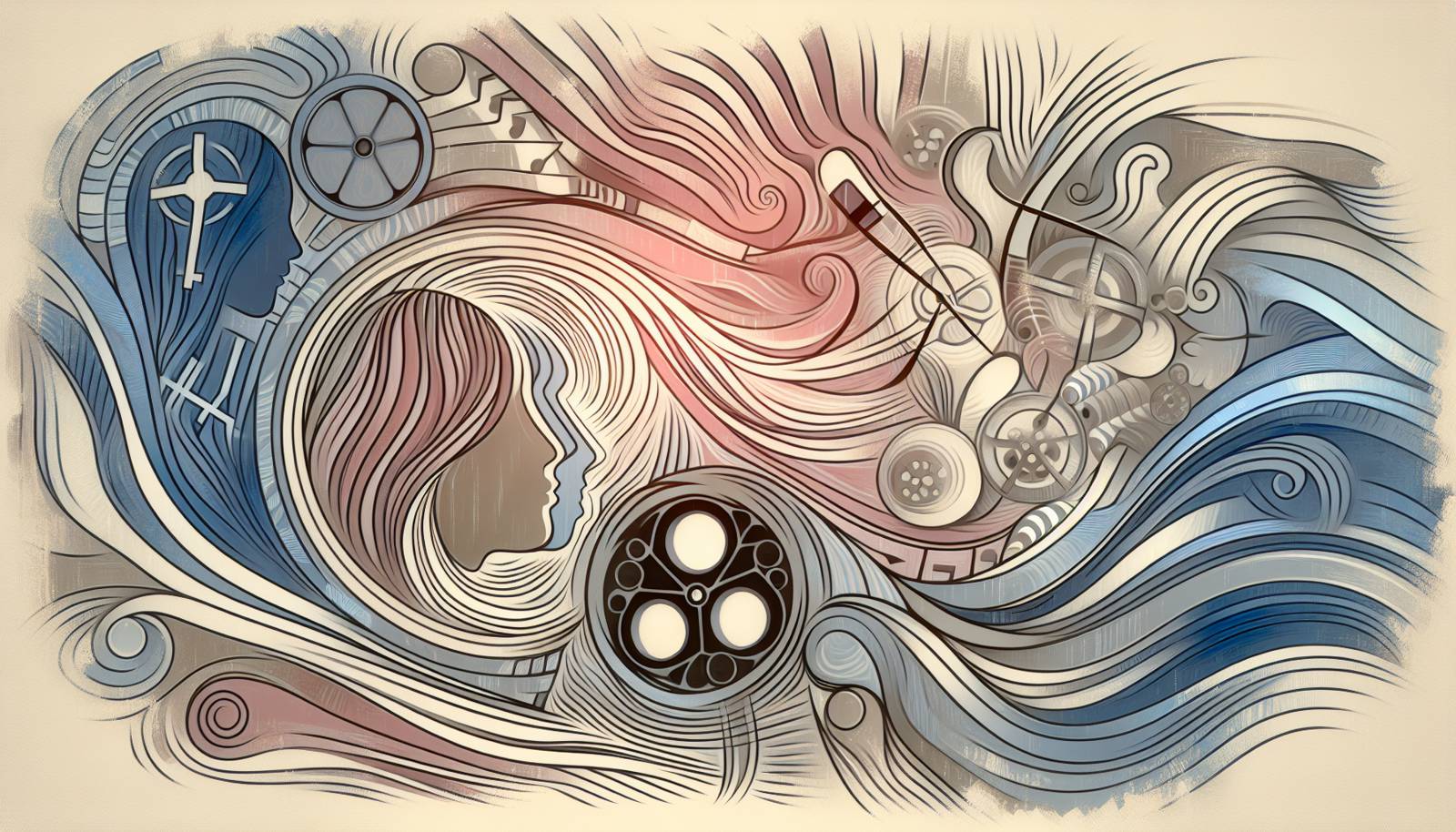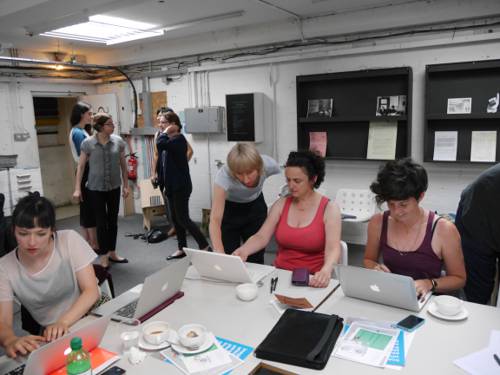
FAQ About The Role of Feminist Film Criticism in Cinema Analysis

What is feminist film criticism?
Feminist film criticism is a theoretical approach that analyzes films from a feminist perspective. It aims to explore gender representation in films, question traditional cinema narratives, and examine how women are portrayed both on-screen and behind the camera. This type of criticism looks at power structures, gender roles, and the marginalization of women in the film industry.

How has feminist film criticism impacted cinema studies?
Feminist film criticism has significantly influenced cinema studies by introducing new theoretical frameworks and approaches. It has brought gender issues to the forefront of film analysis, encouraging scholars and critics to consider how films perpetuate or challenge societal norms around gender. As a result, it has expanded the scope of film studies to include a more diverse range of voices and perspectives.

Who are some influential feminist film critics?
Some influential feminist film critics include Laura Mulvey, known for her work on the "male gaze" theory, bell hooks, who explores race and feminism, and Molly Haskell, who has written extensively on women's representation in film. Each of these critics has contributed significantly to the discourse on gender and cinema.

What is the 'male gaze' in feminist film criticism?
The 'male gaze' is a concept introduced by feminist film critic Laura Mulvey in her seminal essay, "Visual Pleasure and Narrative Cinema." It refers to the way visual arts are structured around a masculine viewer. In this framework, women are often depicted from a male perspective, objectifying them and reinforcing traditional power dynamics.

How does feminist film criticism address gender stereotypes in movies?
Feminist film criticism addresses gender stereotypes by critically analyzing how films portray men and women. It challenges reductive gender roles and seeks to reveal how stereotypical portrayals can limit and define women's roles both in cinema and society at large. Critics often call for more complex and diverse representations of women on screen.

Why is feminist film criticism important for modern filmmakers?
Feminist film criticism is vital for modern filmmakers as it encourages them to think critically about gender representation in their works. By understanding and avoiding sexist tropes, filmmakers can create content that is more inclusive and reflective of real-world gender diversity. This approach can broaden audience appeal and contribute to social change.

Can you give an example of a film that benefited from feminist critique?
An example is the "Mad Max: Fury Road" (2015), which received praise for its strong female characters and subversion of traditional gender roles. Feminist critiques highlighted how the film centers on the character Furiosa and her struggle for liberation, thereby challenging traditional action movie tropes and emphasizing themes of empowerment and resistance.

What impact has feminist film criticism had on Hollywood?
Feminist film criticism has gradually influenced Hollywood by shifting narratives towards more inclusive storytelling. It has pressured studios to consider diversity in casting and storytelling, resulting in more films that pass the Bechdel Test and portray complex female characters. Activism within the industry has also led to more women in production roles.

How does feminist film criticism intersect with other forms of critique, like race or LGBTQ+ analysis?
Feminist film criticism often intersects with race and LGBTQ+ analyses, as these frameworks all challenge normative structures and seek broader representation. This intersectionality acknowledges that gender does not exist in isolation and that other identities also influence how individuals are represented and perceived in media.

What is the Bechdel Test and how does it relate to feminist film criticism?
The Bechdel Test is a measure developed by cartoonist Alison Bechdel to assess the representation of women in films. A film passes the test if it features at least two women who talk to each other about something other than a man. This test is often used in feminist film criticism to evaluate gender bias in cinema and highlight the lack of female-centric narratives.

How do feminist film critics evaluate character development in movies?
Feminist film critics evaluate character development by examining how characters, especially women, are portrayed in terms of depth, autonomy, and agency. They look for complex character arcs that defy stereotypes and allow female characters to be portrayed as multi-dimensional human beings with their own motivations and goals.

What role does feminist film criticism play in independent cinema?
In independent cinema, feminist film criticism plays a crucial role by championing films that explore gender themes and by giving visibility to female directors and storytellers. It supports films that challenge mainstream conventions and provide a platform for diverse voices to tell unique and often underrepresented stories.

How do filmmakers incorporate feminist perspectives into their work?
Filmmakers can incorporate feminist perspectives by creating nuanced characters, avoiding stereotypical depictions, considering diversity in casting, and telling stories that highlight women's experiences. Engaging with feminist criticism can help filmmakers become more aware of these aspects, ensuring their works reflect a commitment to gender equality.

What is an example of a film negatively critiqued from a feminist perspective?
A film like "The Wolf of Wall Street" (2013) has been critiqued for its portrayal of women and focus on male hedonism. Feminist critiques argue that it objectifies female characters and sidelines them to serve the male protagonist's narrative, reinforcing harmful stereotypes about gender and power.

Why do some people critique feminist film criticism?
Critics of feminist film criticism argue that it can be overly focused on gender issues, potentially overshadowing other elements of filmmaking such as technical artistry or narrative complexity. Some also believe that it may impose contemporary moral frameworks on historical works without considering the context of their creation.

How has feminist film criticism evolved over time?
Feminist film criticism has evolved from focusing primarily on representation and the male gaze to embracing more intersectional approaches. It now includes analyses that consider race, ethnicity, sexuality, and class, recognizing the complexity of identity and how these intersecting factors influence women's experiences and portrayals in film.

What challenges do feminist film critics face today?
Feminist film critics today face challenges such as addressing the fast-paced changes in media consumption brought about by streaming services and the globalization of cinema. They also confront backlash from audiences resistant to feminist ideologies and strive to make their critiques accessible and relevant in a saturated media landscape.

How does feminist film criticism address the issue of female directors in the film industry?
Feminist film criticism highlights the underrepresentation of female directors in the industry and advocates for more equitable opportunities. It critiques the barriers women face in achieving recognition and calls for systemic changes to foster an environment where female filmmakers can thrive, thereby influencing the diversity of stories told on screen.

Are there specific film festivals focused on feminist films or themes?
Yes, there are several film festivals dedicated to feminist films, such as the Athena Film Festival, which celebrates women's leadership and features films that address gender equality. These festivals provide a platform for feminist cinema, showcasing films by and about women, and promoting discussions on relevant social issues.

How do audiences generally respond to films analyzed through a feminist lens?
Audience responses to films analyzed through a feminist lens can vary widely. Some acclaim these analyses for revealing deeper meanings and challenging traditional narratives, while others may criticize them for being too politically driven. The response often depends on individual beliefs about gender roles and openness to feminist ideas.
